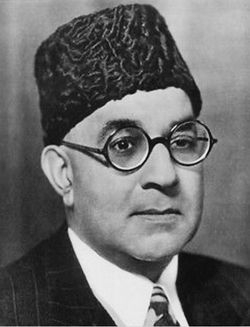Free and Fair Elections in Pakistan: A Farfetched Possibility.
Pakistan is a country with a complex and turbulent political history, marked by frequent military interventions, civil-military conflicts, and political instability.
The possibility of a strong democratic government in Pakistan depends on several factors, such as the level of public participation, the fairness and transparency of the electoral process, the respect for the rule of law and human rights, the accountability and responsiveness of the elected representatives, and the role and influence of the military and other non-state actors. Pakistan faces several challenges and threats to its democracy, such as political polarization, media censorship, judicial interference, economic crisis, security issues, and external pressures.
The probability of general elections as planned by the caretaker government is high, as the Election Commission of Pakistan (ECP) and the President have agreed on 8 February 2024 as the date for the general election. This date was announced after the ECP met the directives of the Supreme Court, which had ordered the ECP to hold elections within 90 days after the dissolution of the assemblies. The ECP has also announced that it has completed the delimitation exercise based on the results of the 2023 digital census, and that it will publish the final list of constituencies on 5 December 2023. The ECP has also assured that it will take all necessary measures to ensure free, fair, and transparent elections in the country.
The Role of Military
For any democratic or socio-political success, one cannot ignore that role of military in Pakistan. The military has a long and powerful history of influencing politics in Pakistan, both directly and indirectly.
Directly, the military has ruled Pakistan for a total of 34 years through three coups, and has often intervened in civilian governments to shape their policies and agendas. The military has also controlled key institutions such as the judiciary, the media, and the intelligence agencies, and has used them to manipulate the political process and public opinion.
Indirectly, the military has influenced politics in Pakistan through its role in national security and foreign affairs, especially in relation to India, Afghanistan, and the US. The military has often pursued its own strategic interests, sometimes at the expense of the civilian government's preferences and legitimacy. The military has also cultivated alliances with various political parties, religious groups, and militant organizations, and has used them to undermine or support different civilian leaders.
The military's influence on politics in Pakistan has had significant implications for the country's democracy, stability, and development. Some of these implications are:
- The military's dominance has weakened the civilian institutions and undermined the rule of law and human rights.
- The military's interference has created political uncertainty and instability, and has hampered the continuity and accountability of the elected governments.
- The military's involvement has polarized the society and increased the risk of violence and extremism.
- The military's priorities have diverted resources and attention from the social and economic development of the country.
Conclusion
The country faces complex challenges such as political polarization, media censorship, judicial interference, economic crises, security issues, external pressures, and political engineering. The military has its own strategic and business interests that it will not compromise and is ready to negotiate with any civilian-elected government. Years of military dominance have weakened civilian institutions, created political uncertainty, increased the risk of violence and extremism, and diverted resources from social and economic development. Therefore, any elections under the current context and circumstances will be simply a selection exercise, another farce, and subject to political engineering that is designed to safeguard the military's interests.
Sources:
(1) Fear for democracy in Pakistan as ISI gets power over civil service .... https://www.theguardian.com/world/2022/jun/12/fear-for-democracy-in-pakistan-as-isi-gets-power-over-civil-service.
(2) Inter-Services Intelligence - Wikipedia. https://en.wikipedia.org/wiki/Inter-Services_Intelligence.
(3) ISI in Pakistan’s Domestic Politics: An Assessment. https://media.neliti.com/media/publications/330725-isi-in-pakistans-domestic-politics-an-as-7891553b.pdf.
(4) Pakistan's shadowy secret service, the ISI - BBC News. https://www.bbc.com/news/world-south-asia-13272009.
(5) How is Pakistan's military looking at political turmoil?. https://www.dw.com/en/how-does-pakistans-military-view-the-political-crisis/a-61877197.
(6) Pakistan looks back to the future as Nawaz Sharif eyes fourth stint as .... https://www.theguardian.com/world/2023/oct/27/pakistan-looks-back-to-the-future-as-nawaz-sharif-eyes-fourth-stint-as-pm.
(7) Explainer: A historical trail of Pakistan's powerful military enterprise. https://theconversation.com/explainer-a-historical-trail-of-pakistans-powerful-military-enterprise-205749.
(8) Pakistani Politics Roiled by Familiar Triangle: Military, Government .... https://www.usip.org/publications/2020/12/pakistani-politics-roiled-familiar-triangle-military-government-opposition.
(9) Democracy in Pakistan - Wikipedia. https://en.wikipedia.org/wiki/Democracy_in_Pakistan.
(10) Where Does Pakistan’s Democracy Go From Here? – The Diplomat. https://thediplomat.com/2023/10/where-does-pakistans-democracy-go-from-here/.




Comments
Post a Comment